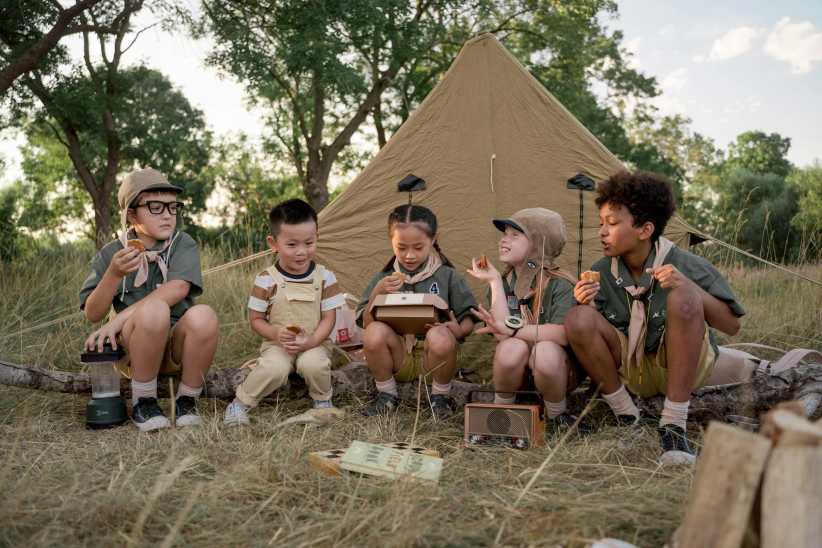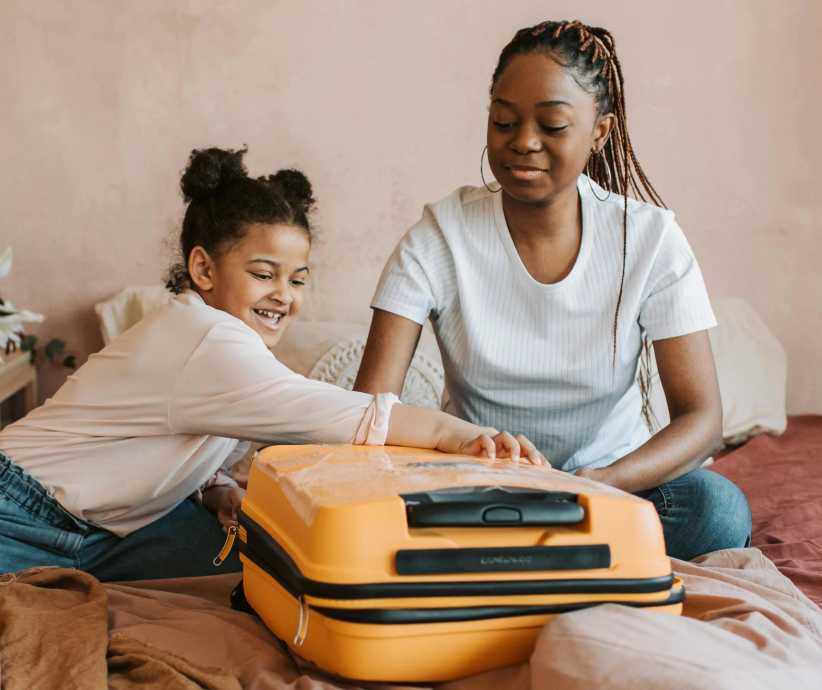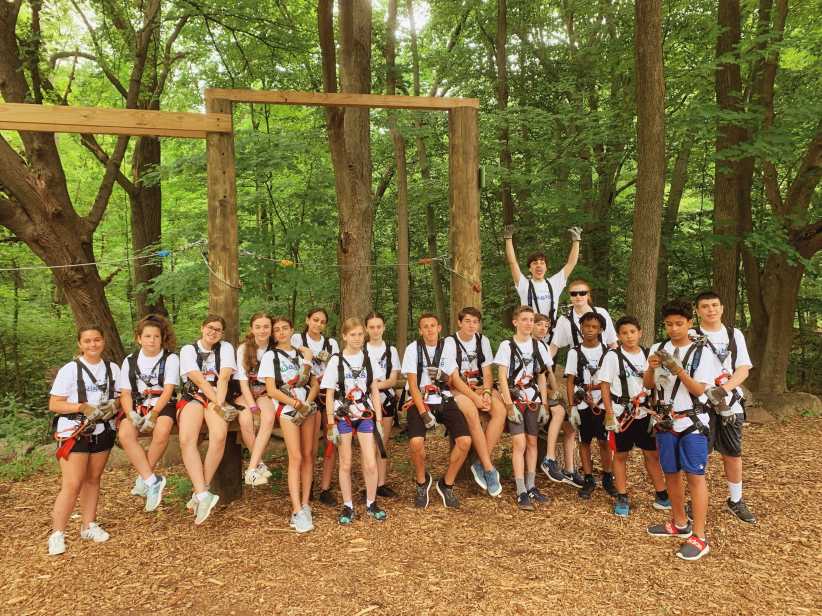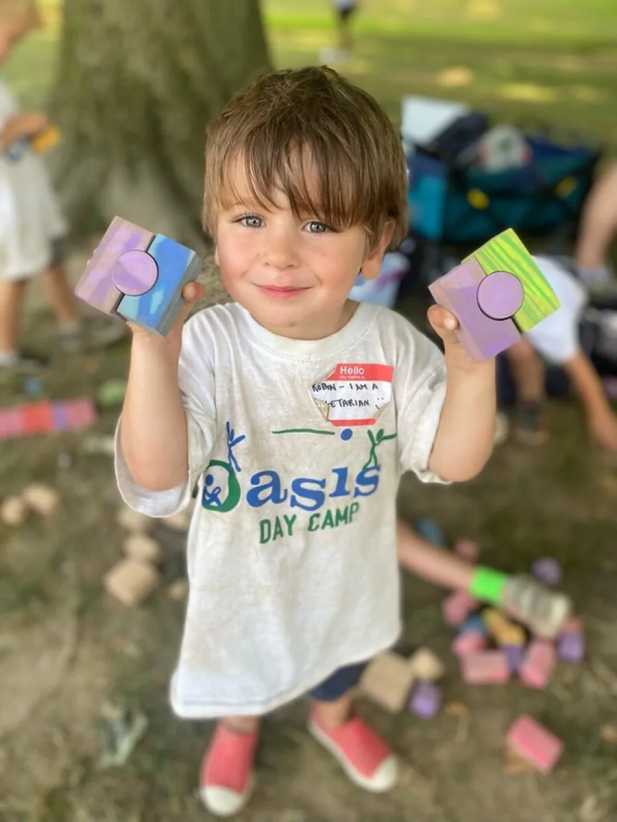
PLEASE NOTE: The city’s biggest Camp Fairs are coming up on Saturday, March 28, and Sunday, March 29, in Manhattan. For families with children ages 3 to teen, the Camp Fairs are free, child-friendly, and feature both Day Camps (in and around the city) and Sleepaway Camps (all over the Northeast). CLICK HERE for details and to register.
When choosing a summer camp, parents want to make sure they take an active role in determining that the camp they send their child to is fully committed to providing a summer of fun and growth in a well-supervised and safe camp environment. Parents shouldn’t be afraid to ask the camp director about safety at camp, and they should feel that the director is willing to answer any safety questions they may have. Here is a list of recommended topics parents can ask questions about to find out about a summer camp’s safety policies.
Camp Review: It is important that a camp has an outside review. “Without outside verification, there’s no one checking to see if a camp is complying with crucial safety standards,” says Doug Volan, owner and director of Mount Tom Day Camp in New Rochelle, NY. “Parents should ask if the camp is permitted by the Department of Health and accredited. Permitted camps must comply with the strict requirements set by the New York State Sanitary Code, including regulations on hiring, screening of staff, fire drills, safety plans, and more. ACA Accredited camps go beyond those minimum standards and comply with over 300 additional health and safety benchmarks.”
Camp Director: Inquire about the camp director’s background and whether he or she is a year-round camp professional or a seasonal employee. Year-round camp professionals spend all year focused on camp and concentrate on youth development, along with recreation and programming.
Staff Composition and Screening: Inquire about a camp’s staff composition. Parents want to look for a camp director who addresses child protection and safety issues with knowledge and sensitivity. “Parents should never feel like they are asking too many questions,” says Justin Mayer, owner and director of Timber Lake West, a co-ed sleepaway camp in Roscoe, NY. “Their child’s safety is too important, so they need to feel as comfortable as they can. Look for a camp that makes safety the number one priority. Parents should be asking a camp questions like: ‘How do you select staff? Who does the interviewing? Do you perform background checks? Where does the staff come from? How old is the staff? What is the staff retention rate? How many former campers are on staff?’ Keep in mind that all ACA Accredited camps in New York State must perform background checks.”
Staff Training: Find out what topics are covered during staff training. At a minimum, camp staff should be trained in safety regulations, emergency procedures and communication, behavior management techniques, child abuse prevention, appropriate staff and camper behavior, and specific procedures for supervision. If there are waterfront activities, families want to make sure they are supervised by a certified lifeguard.
Transportation: If your child will be taking the bus each day to day camp, parents should inquire about bus safety. Either a central location or door-to-door transportation is offered to families whose child is attending day camp. Bus questions to ask include: What are the training practices of the driver? Are they certified with a commercial driver’s license? Does the camp hire a bus company that provides drivers or does the camp have their own staff drive? How many counselors are on the bus? Does the bus have two-way radio & cell phones for emergencies? How does the camp contact the families if the bus is delayed? How are the buses maintained? Is the bus equipped with seat belts and air conditioning?
Medical Staff: Ask if there is a licensed physician or registered nurse in residence or on call for campers at all times. Parents also want to make sure the camp has EpiPens and automated external defibrillators on-site, and that the camp employs staff members trained to use them.
Emergency Plans: Ask if the camp has emergency plans in place for natural disasters (storms, tornados, etc). Inquire about communication procedures during emergencies such as contact with local emergency services and parents.
Water Safety: “Safety should always be a top concern for any new parent looking for a summer camp experience for their child,” says Josh Male, owner and director of Gate Hill Day Camp in Stony Point, NY. “When talking to a director on the phone or during a tour, it is a good idea to have questions ready ahead of time. When inquiring about water safety, parents should ask questions such as: ‘What certifications do the lifeguards and supervisors have at the pool or waterfront? What is the experience of the supervisor? How is the pool or waterfront supervised when campers are not swimming? What are the camps’ safety procedures? Has the camp had any injuries at the waterfront and how are they handled?’”
Special Protocol for Field Trips: If campers are going off of camp grounds, ask if the accompanying staff has first aid and CPR training, a buddy system or lost camper plan, and if the counselors bring communication devices with them out of camp.
Camp References: Look for a camp director who welcomes your request to contact other camp parents. Parents shouldn’t be afraid to ask for references. Speaking with other parents is a good way to check a camp’s reputation and service record. Ask other parents about the experiences of their children at the camp and if they are going back next summer. Families can also ask these parents for the names of other parents and children who have attended the camp.























